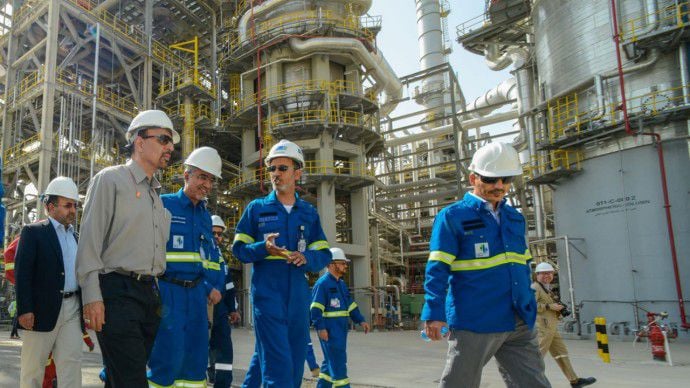Saudi Arabia Offers Output Cut for OPEC Deal

Saudi Arabia has offered to reduce oil production if rival Iran caps its own output this year, four sources familiar with the discussions told Reuters as Riyadh seeks an OPEC deal to curtail supply and boost prices.
The offer, which has yet to be accepted or rejected by Tehran, was made this month, the sources told Reuters on condition of anonymity.
OPEC holds an informal meeting next week in Algiers, which non-OPEC Russia will also join. The group, which produces a third of the world's oil, will also have a formal gathering in Vienna at the end of November.
Riyadh is ready to cut output to levels seen early this year in exchange for Iran freezing production at the current level, which is 3.6 million barrels per day (bpd), the sources said.
"They (the Saudis) are ready for a cut but Iran has to agree to freeze," one source said. Three more sources confirmed the offer was presented to Tehran.
A source familiar with Iranian thinking declined to comment on details of the proposal but did not rule out a compromise next week: "Let them all talk face to face."
There was no official comment from Saudi Arabia or Iran.
A source familiar with Saudi oil thinking said: "Our goal is to reach a consensus and look at different scenarios for the production levels of the OPEC countries."
"We are looking forward to a credible and transparent solution which would lead to market stability," that source said, adding that the informal OPEC meeting would hopefully help build consensus before the formal gathering in November.
SEEKING CONSENSUS
Saudi output usually drops in winter and spikes during hot summer months, hence Iran could dismiss the proposed reduction as an attempt by Riyadh to present a natural decline as a cut.
Iran has been promising to boost output to 4 million bpd, although production has stagnated in the past three months at around 3.6 million bpd, indicating the new push might be difficult without additional investments.
The first source did not say by how much Riyadh would cut if Iran agreed to a freeze. The Algerian oil minister said this month that OPEC would need to reduce supply by around 1 million barrels per day to help rebalance the market.
Riyadh's production has spiked since June due to summer demand, reaching a record high in July of 10.67 million bpd and edging down to 10.63 million bpd in August. From January to May, Saudi Arabia produced around 10.2 million bpd.
Previously, the Saudis have refused to discuss a production cut.
OPEC officials from Saudi Arabia and Iran met this week in Vienna. According to sources, they did not discuss the Saudi proposal, focusing instead on baseline production figures.
The meeting produced no breakthrough, the sources said. The source familiar with Saudi thinking said it would nevertheless help build consensus.
Two sources said Saudi Arabia's Gulf OPEC allies the United Arab Emirates, Qatar and Kuwait were expected to contribute to any output reduction.
Saudi Arabia, by far the largest producer in the Organization of the Petroleum Exporting Countries, will shoulder the biggest cut, the sources said.
The proposal can be seen as a shift by Riyadh, which orchestrated the current OPEC policy in 2014 by refusing to cut output alone to support prices and chose to defend market share against rivals, particularly high-cost producers.
A fall in oil prices to $30-$50 per barrel from levels as high as $115 seen in June 2014 led to a boost in global oil demand and a decline in high-cost supplies such as those from the United States.
But the Saudi strategy caused a rift in OPEC, whose poorer members have faced a budget crisis and unrest. Riyadh and its Gulf allies also had to tighten their belts after a decade of generous public spending.
As the pain of cheap oil grew and pressures on Saudi finances increased, Riyadh and Tehran signaled they were willing to show more flexibility to prop up prices.
However, the first attempt at a global production pact collapsed in April when Riyadh insisted Tehran participate. Iran has said it will not join any such agreement until it boosts output to pre-sanctions levels.
